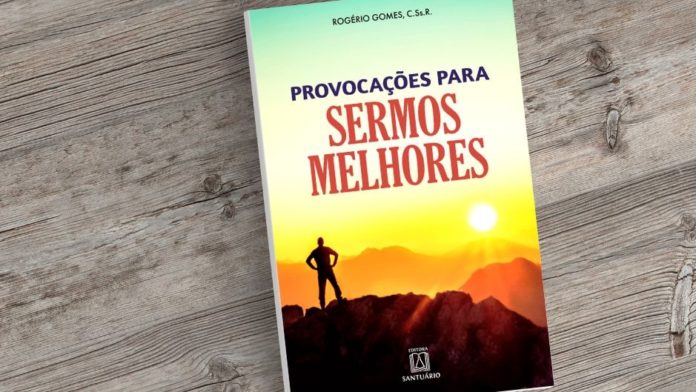Fr. Rogério Gomes, C.Ss.R., general consultor and professor of the Alphonsian Academy, is an author of a new book: Provocações para sermos melhores. A vida que provoca a fé e a fé que ilumina a vida [Provocations to be better. The life that generates faith and the faith that illuminates life], published recently by Editorial Santuario de Aparecida, Brazil.
The preface of the work is written by Rita de Cassia Mendes Alvares, PhD in Psychology from the Institute of Psychology of the University of São Paulo (USP) and Master in Social and Institutional Psychology from the Federal University of Rio Grande do Sul (UFRGS).
The introduction reads: “The possibility of being good and acting with goodness exists in this life, in this world. And that is what we were created for. Thus, every moment of our life translates into possibilities of doing something better. Even our mistakes have pedagogical potential, enabling learning that helps us adjust our actions. Here, we find this provocation… what do our mistakes teach us? Living in this world is not easy. We face challenges at every turn. Yet this is where we build our history. No human story is a tragedy, even when there is adversity. There is always the possibility of something new, of creating something good”… (p.9).
The book comprises 55 texts of meditation and reflection that touch on existential questions in various senses.
The author starts with simple things and everyday life to make us reflect on our relationship with ourselves, other human beings, God and the different events around us. Each of the themes touches on life in a different way. They are existential themes and make us reflect and deepen our life of faith to improve our relationship with God and, therefore, improve our actions. With simple and poetic language, the author throws the reader some provocations with the intention that the reader can make his own judgements and look for his own answers.
At the end of the book, we are confronted with this question: what were the provocations that emerged from reading the text? This itinerary is processual and should lead you to think about how you face your life, how you profess your faith and how the profession of this faith qualifies your daily actions in the world and makes these actions transforming and always tending towards the good. This is a challenging but beautiful path to walk. One cannot delegate one’s responsibilities to others. In this sense, the process of daily personal conversion is personal and will depend, in the first place, on each individual” (p. 127).
Scala News






